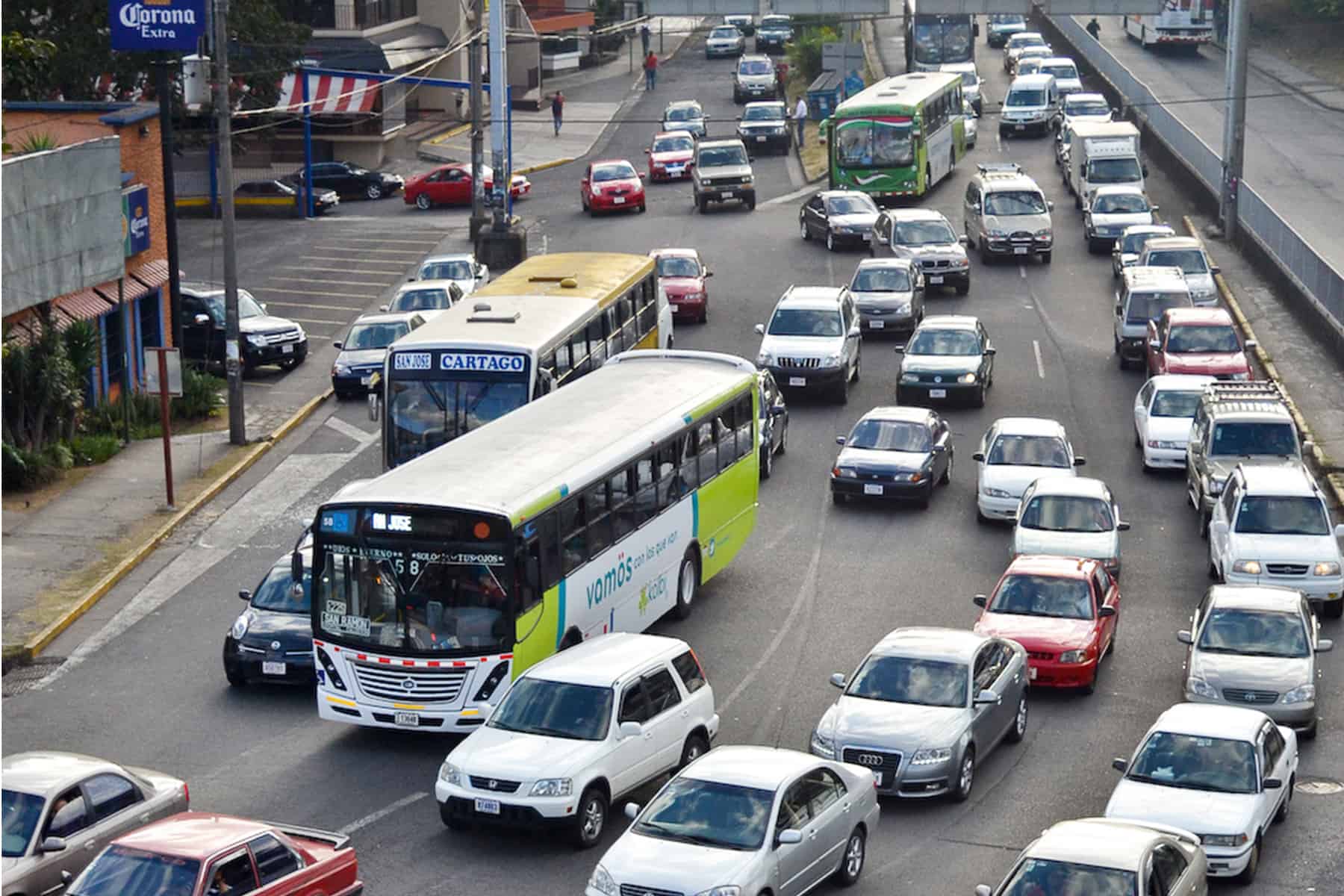Transit Police asked the Costa Rican public to drive safely this upcoming long weekend, when many people will have Monday off for Independence Day.
Authorities are expecting a large amount of vehicular traffic as people head to tourist sites on mountains and beaches. This will also represent the second weekend this year with no daytime vehicular restrictions.
“We are combining several factors that force us to be more attentive, such as the long weekend, national celebrations, the non-application of the restriction for even and odd plates, hence the call to have responsible behaviors, such as not abusing speed in order to get to the destination faster, not driving if you consumed liquor,” said Alberto Barquero Espinoza, deputy director of the Traffic Police.
Traffic police will increase their vigilance over the weekend and stressed the importance of driving sober. They also advised against overloading vehicles or improperly securing items to a roof rack.
“We also have the case of overloaded vehicles, whether they have too many things on the roof, and poorly tied, which is a risk for other drivers, or that they exceed the capacity of people who can travel in the car. Along these lines, we want to remember that all people must travel with a seatbelt on and that what they carry in the vehicle cannot represent a risk for other road users,” Barquero said.
Drivers should stay alert to a large quantity of bikers, runners and other athletes on the road. Cyclists should wear reflecting clothing and respect road rules, Barquero said.
Costa Rica driving tips
Weather events are among the many hazards drivers face in Costa Rica. Below is a list of vehicle safety tips compiled from a 2006 Tico Times story:
Maintain a high level of concentration
It is easier to maintain a high level of concentration while driving during the daytime; avoiding nighttime driving is therefore advisable. The paved and dirt roads of Costa Rica have many dangerous challenges that are not easily foreseen. Below are a few obstacles drivers frequently encounter, both night and day:
- Large potholes
- Roadside and road-bed washouts
- Narrow bridges
- Other motorists, pedestrians, bicycles, motorcycles
- Horses, cattle, dogs and other animals on the roads
- Narrow roads with very little, if any, shoulder
More concentration is needed while on the highways of Costa Rica than one might expect; there are a lot of hills and most of the highways are single-lane. Passing slow-moving, large trucks on hilly highways adds risk.
Driving on unpaved roads or on paved roads in poor condition requires the driver to concentrate on the path of both sets of wheels, left and right.
Be sure to leave some space if you are following vehicles in front of you. If you are to swerve, you need to be able to see if you have room on the shoulder as well as the oncoming traffic in the other lane.
Frequently asked-for and necessary documents.
- A valid driver’s license. Costa Rica honors other countries’ valid driver’s licenses for 90 days. After 90 days, you should obtain a Costa Rican license.
- Passport or resident’s cédula card.
- Vehicle papers: copy or original title/registration, up-to-date Riteve (vehicle inspection) and marchamo (vehicle circulation permit) stickers.
- Front and rear plates.
Be aware of dry- versus wet-season differences.
During the dry season, visibility on dirt roads can be impeded by the high level of dust. Leave an extra amount of space between you and the vehicle ahead to allow the dust to settle or blow aside off the road. Dirt roads also become washboarded and rocky this time of year.
During the wet season, the roads are in worse condition, paved and unpaved. Water fills the potholes, preventing you from seeing the depth of the hole. If you can’t find a path around all of the potholes, adjust your speed and drive slowly enough so you don’t hammer on your suspension system as you pass through them. More things on your vehicle will fail or break down in the wet season than any other time. The rain, humidity and poorer quality of the roads all take their toll on your vehicle.
Don’t put off vehicle repairs during the wet season.
A few words about river crossings: the rivers are deeper and faster moving during the rainy season. Most vehicles have the ability to ford a depth up to the center of their wheels, more or less. When in doubt, watch other vehicles cross or walk across the river yourself to measure its depth. If you are still unsure, don’t cross.
Driving smart
First, remember that Costa Rica measures distances in kilometers, not miles. The speed limit is not always posted on road signs. Often, speed-limit changes (and stops, and yields) are indicated by painted indicators on the road itself.
GPS applications such as Waze can help alert you to traffic, police checkpoints and road hazards.
It is not uncommon while driving in Costa Rica to be stopped by police. Be prepared by having your papers in order and obeying all of the laws. Unattended vehicles should be locked. Do not leave belongings unattended in a vehicle, locked or otherwise, as this may be an invitation to thieves.









